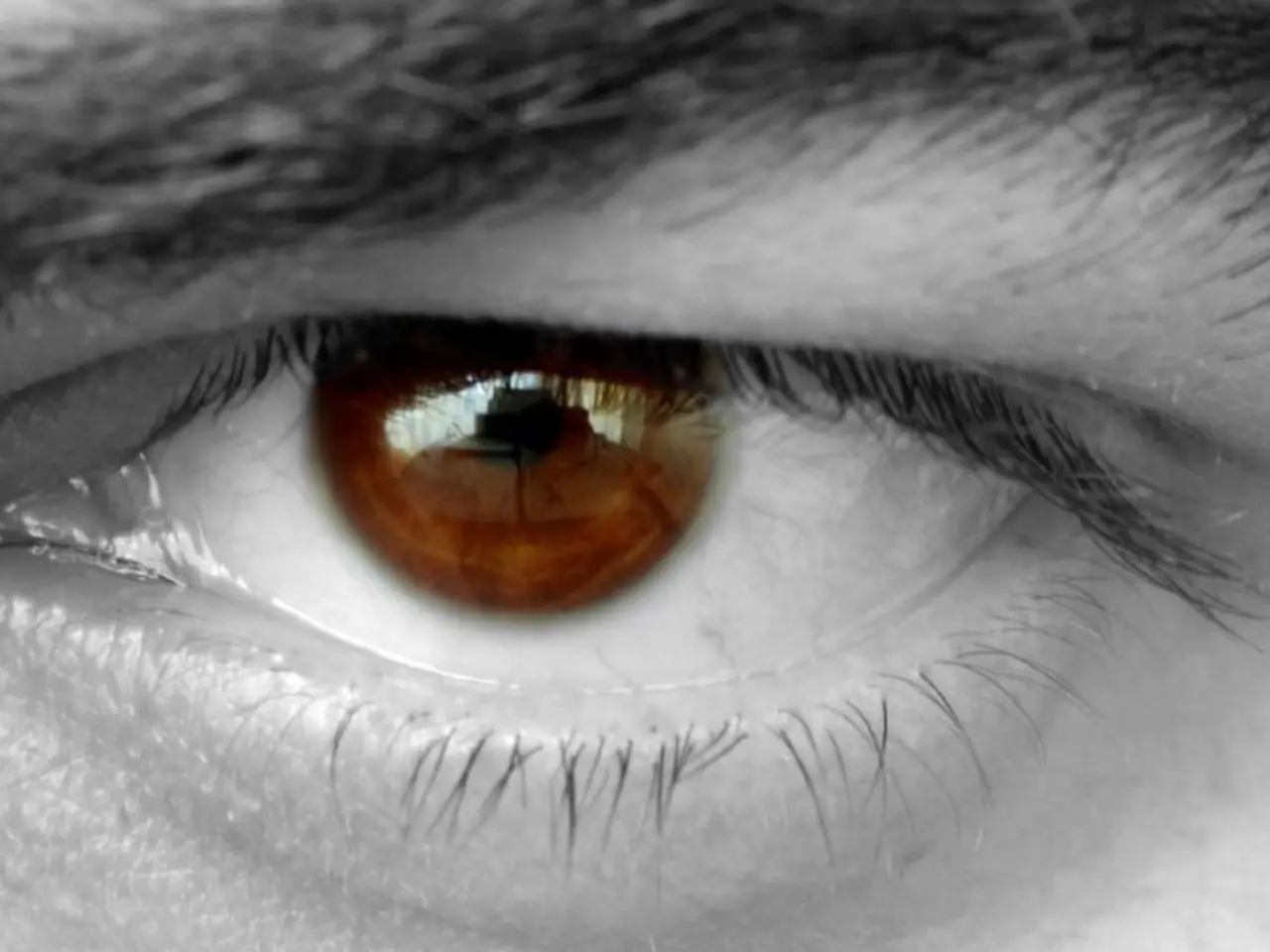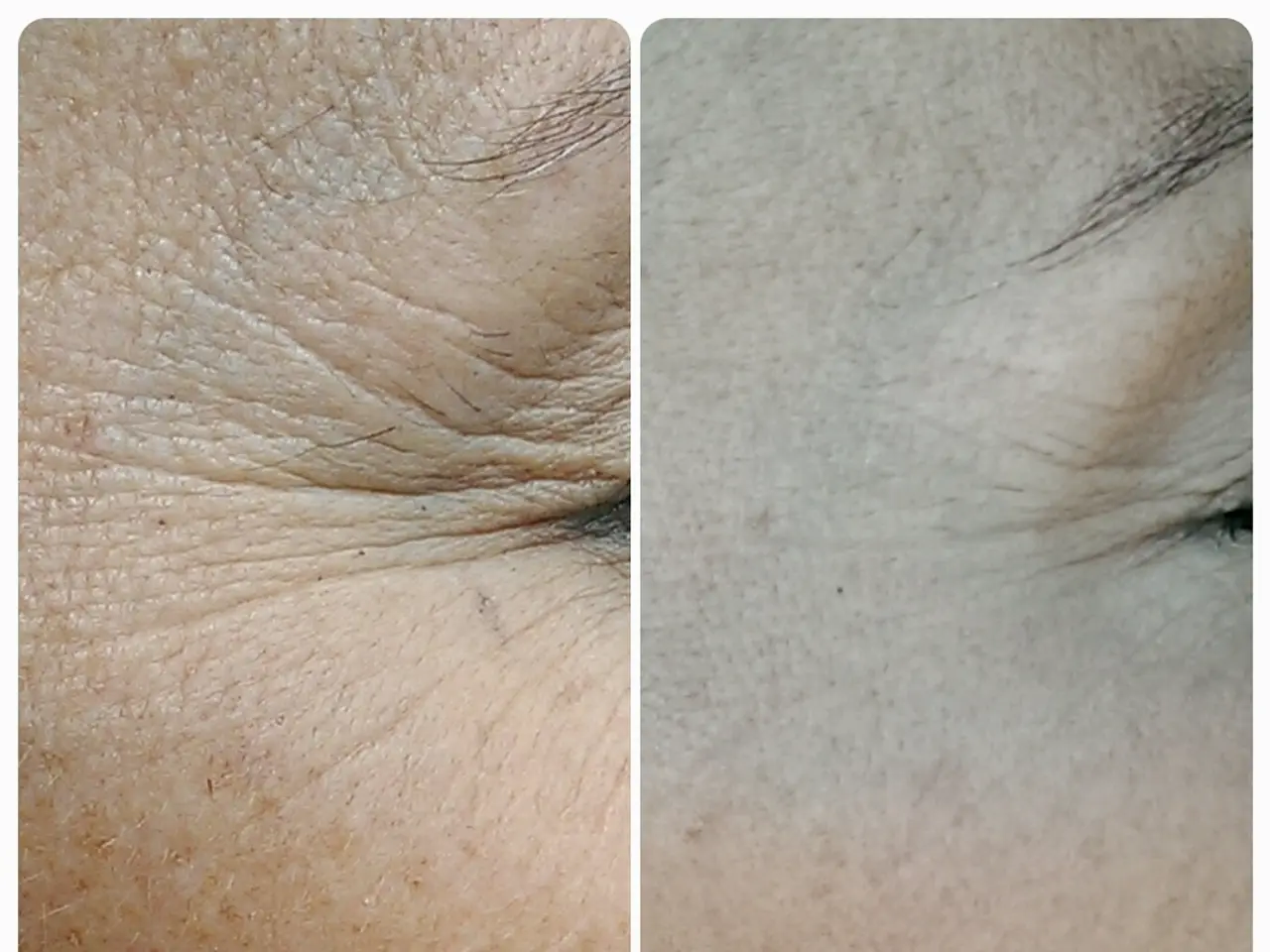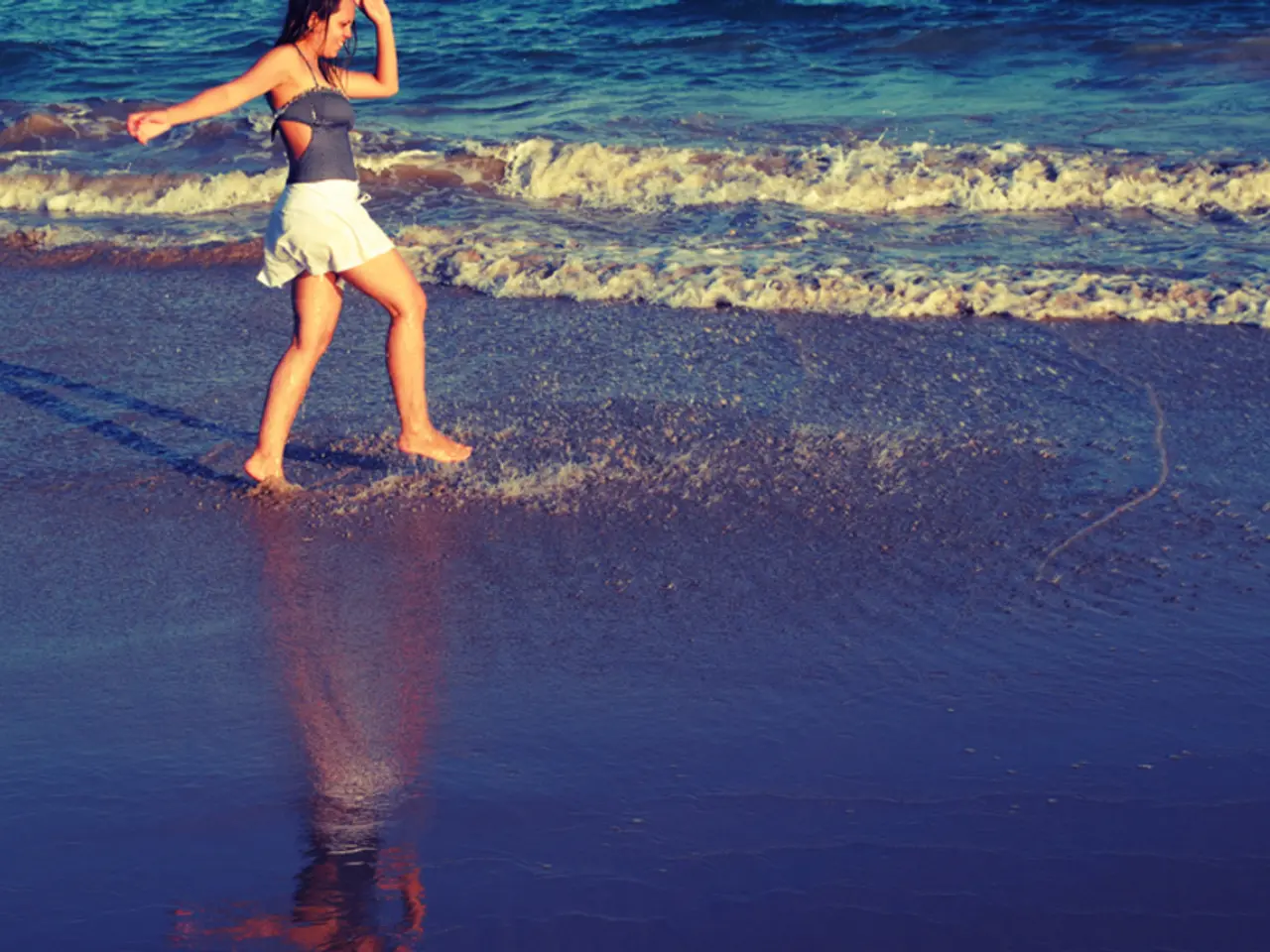Nightly dry eye causes: Exploration, remedies, and additional insights
Sleeping peacefully can be a challenge for those suffering from dry eyes, but there are several strategies to help alleviate this issue and ensure a comfortable night's rest.
One of the most common causes of dry eyes at night is a dry sleeping environment. Heating, air conditioning, or naturally low humidity can cause tear evaporation while you sleep, leaving your eyes dry by morning. Using a humidifier can help by adding moisture to the air, thus preventing tear evaporation and maintaining eye moisture throughout the night.
Another culprit is eyelid issues such as incomplete closure or meibomian gland dysfunction (MGD). The meibomian glands in your eyelids produce oils that stabilize the tear film and prevent evaporation. Dysfunction or inflammation of these glands can cause evaporative dry eye, especially at night.
Allergens like pollen, dust mites, pet dander, or mold can accumulate on bedding and irritate eyes during sleep, causing dryness and inflammation. Ensuring your bedroom is allergen-free by regularly cleaning and changing bedding, vacuuming, and using air filters can help reduce nighttime dry eye discomfort.
Certain medications and health conditions can also contribute to dry eyes. Antihistamines, for example, can reduce tear production, while autoimmune diseases like Sjögren’s syndrome can affect tear gland function. It's essential to discuss any concerns about medications or underlying health conditions with a healthcare professional.
A decreased blink rate and tear production, often exacerbated by screen time during the day, can also worsen symptoms overnight. While it may be difficult to completely eliminate screen time, maintaining good hydration and limiting caffeine intake can help improve overall body moisture and reduce the impact of dry eyes at night.
For those experiencing severe, chronic, or persistent dry eyes, it's crucial to seek professional medical advice. Doctors may prescribe anti-inflammatory ointments, eye drops, or eyelid washes to treat eye or eyelid inflammation. In some cases, surgery may be required for people with loose eyelids to prevent tears from draining too quickly.
New therapies such as thermal pulsation and intense pulse light may help stimulate the meibomian glands to produce the oil of the outer lipid layer, helping to keep the eye moisturized. Additionally, eye drops like Cyclosporine (Cequa) and lifitegrast (Xiidra) are designed to help produce more tears for people with dry eyes.
In summary, addressing nighttime dry eye discomfort involves addressing bedroom humidity, eyelid health, and allergen control. By implementing these strategies, it's possible to enjoy a restful and comfortable night's sleep, even for those with dry eyes.
- Using a humidifier can help prevent tear evaporation and maintain eye moisture during sleep, especially in dry sleeping environments.
- Heating, air conditioning, or low humidity can cause tear evaporation while sleeping, leading to dry eyes.
- Allergens like pollen, dust mites, pet dander, or mold can accumulate on bedding and irritate eyes during sleep, causing inflammation and dryness.
- Certain medications and health conditions, such as antihistamines or autoimmune diseases like Sjögren's syndrome, can reduce tear production and contribute to dry eyes at night.
- Severe, chronic, or persistent dry eyes may require professional medical treatment, such as prescription ointments, eye drops, eyelid washes, or even surgery for those with loose eyelids.




